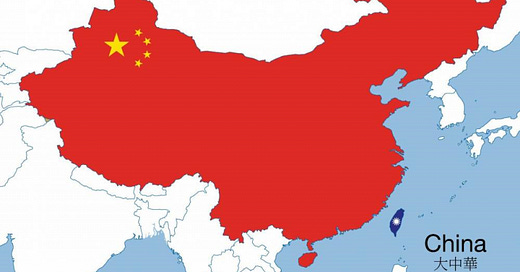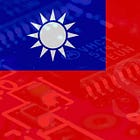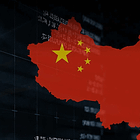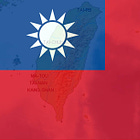Taiwan Elects New Leadership: What Is Their Stance On Independence?
History of Taiwan: Taiwan Was Ruled By Japan For 50 Years, Before That Occupied By China, And Spanish, and Dutch Settlers.
TAIPEI - Taiwan’s much anticipated presidential elections are over, with Lai Ching-te being selected to become the next President of the island and Hsiao Meiqin the next Vice President.
But what caused the entire world to be so anxious about the elections of a small island in East Asia? And where do the new President and Vice President stand with China, and issues relating to Taiwan’s independence?
Taiwan Was Ruled By Japan For 50 Years, Before That Occupied By China, And Spanish, Dutch Settlers
Despite China’s hard-line stance that Taiwan is only one sovereign state under the name China, with the People’s Republic of China (PRC) serving as the sole legitimate government of that China, and that Taiwan is an inalienable part of China, Taiwan was not always part of territory owned by China.
Taiwan was ruled by Japan from 1895 to 1945, for 50 years before Japanese forces stationed in Taiwan surrendered to the Republic of China (ROC) after the United States dropped two nuclear bombs on Japan, one hitting Hiroshima and the other the city of Nagasaki.
Taiwan had been under the Qing dynasty before the Japanese victory in the First Sino-Japanese War, after which China ceded its claim over the Fujian-Taiwan Province in the Treaty of Shimonoseki.
China’s first official claim on the island was in 1885 when Taiwan was declared a province of the Qing Empire, just ten years before it was ceded to Japan.
Before 1885, the island was controlled by Chinese Ming loyalists under the Ming Dynasty after driving out the Dutch settlers in 1662. Before the Dutch settled on the island, Spanish settlers inhabited it who were then ousted by the Dutch in 1642.
Not much is known about the island before 1642, except that it was called “Formosa” in 1544 by Portuguese explorers who said that the island was beautiful. The word Formosa means “beautiful”.
US State Department Congratulates Lai Ching-te On His Election Win, Biden: US Does Not Support Taiwan Independence
After giving mixed signals by saying on more than one occasion that the United States would defend the island of Taiwan if it was attacked by China, U.S. President Joe Biden now says that the United States does not support Taiwan’s independence.
When Biden was asked about Taiwan’s elections, he said “We do not support independence”.
Meanwhile, the U.S. State Department released a statement congratulating the newly elected President Lai Ching-te on his victory during the election.
“The United States congratulates Dr. Lai Ching-te on his victory in Taiwan’s presidential election. We also congratulate the Taiwan people for once again demonstrating the strength of their robust democratic system and electoral process,” the statement said.
The State Department added, “The United States is committed to maintaining cross-Strait peace and stability, and the peaceful resolution of differences, free from coercion and pressure”.
The statement went on to say, “The partnership between the American people and the people on Taiwan, rooted in democratic values, continues to broaden and deepen across economic, cultural, and people-to-people ties.
We look forward to working with Dr. Lai and Taiwan’s leaders of all parties to advance our shared interests and values, and to further our longstanding unofficial relationship, consistent with the U.S. one-China policy as guided by the Taiwan Relations Act, the three Joint Communiques, and the Six Assurances.
We are confident that Taiwan will continue to serve as an example for all who strive for freedom, democracy, and prosperity.”
Full History Of Taiwan, What Does The Newly Elected Leadership Think Of Its Independence? China’s Reaction To The Election Results:
Keep reading with a 7-day free trial
Subscribe to The Standeford Journal - News, Intel Analysis to keep reading this post and get 7 days of free access to the full post archives.








